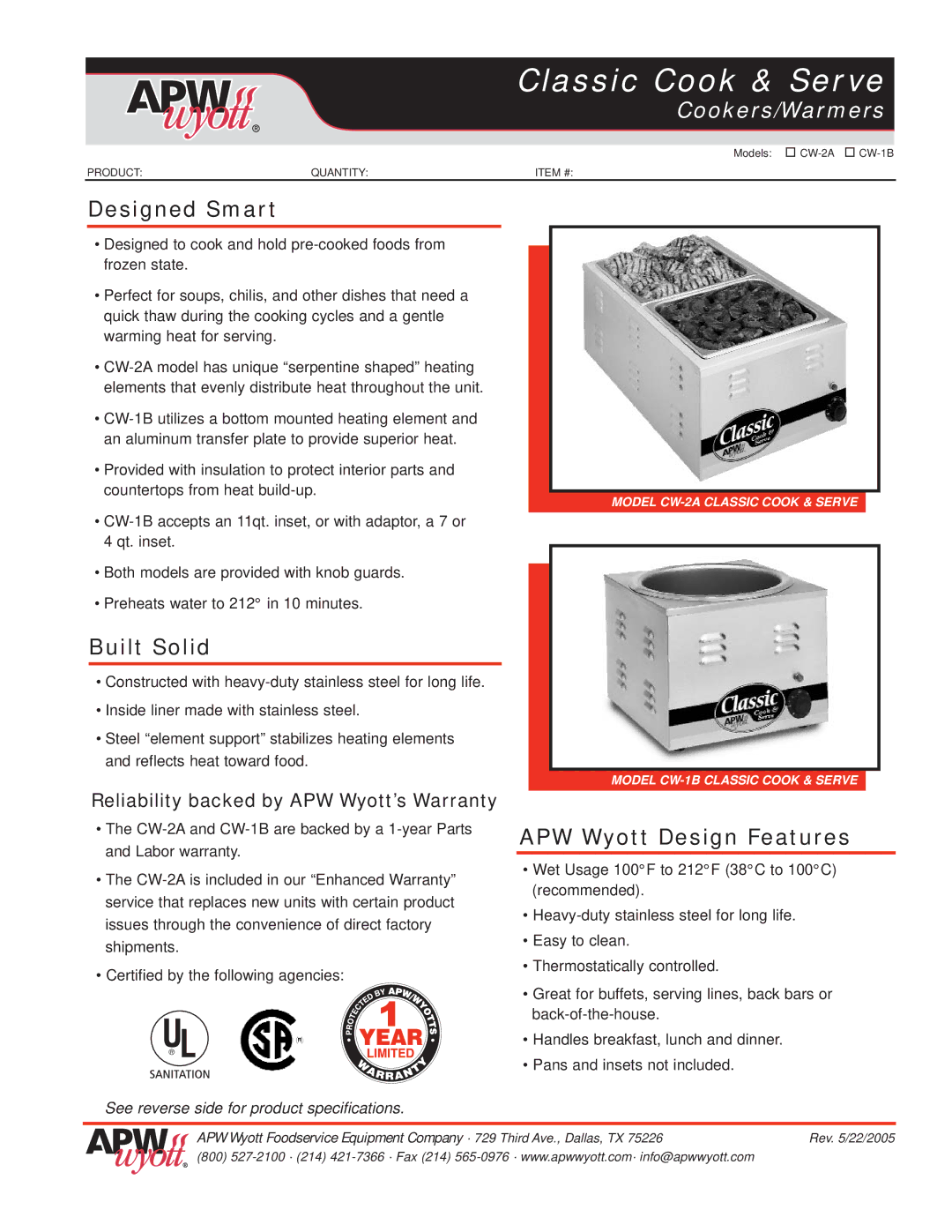CW-1B, CW-2A specifications
APW Wyott is a prominent name in the foodservice industry, known for producing high-quality cooking and warming equipment. Among their standout products are the APW Wyott CW-2A and CW-1B countertop warmers, both designed to meet the needs of busy commercial kitchens.The APW Wyott CW-2A is a two-compartment warmer, making it an ideal choice for establishments that require versatile and efficient food heat retention. It features an adjustable heating element that allows operators to set the temperature to their specific needs, ensuring that food remains at optimum serving temperatures. The warmer is constructed from stainless steel, offering durability and resistance to corrosion, which is crucial in a high-volume environment. The CW-2A comes equipped with a built-in water pan that helps maintain humidity, preventing food from drying out while keeping it warm.
In contrast, the APW Wyott CW-1B is a single-compartment warmer, perfect for smaller operations or as an additional unit in larger setups. Like the CW-2A, the CW-1B features an adjustable temperature control to cater to various food items, making it a versatile option. The single-compartment design allows for easy access and can accommodate a variety of food pans, providing flexibility in menu offerings. Its compact form factor means it can fit into tighter spaces without sacrificing performance.
Both models utilize innovative heating technologies ensuring efficient warmth distribution. The heated base and top elements work in tandem to provide even heating throughout the compartment. The units also include a flexible thermostat for consistent temperature control, enhancing food quality and safety.
Key characteristics of both the CW-2A and CW-1B include easy-to-clean surfaces, ensuring they remain hygienic and compliant with health regulations. Built-in pilot lights indicate when the units are heating, providing visual confirmation for easy operation.
The APW Wyott CW-2A and CW-1B are designed for efficiency, reliability, and user convenience, making them essential components in any commercial kitchen that prioritizes food quality and operational effectiveness. Their combination of durability, performance, and flexibility makes them valuable assets in a wide range of foodservice settings, from delis and cafes to large-scale catering operations.

